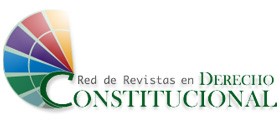La palabra y los silencios de los docentes: el Derecho constitucional y la perspectiva (de género). (RI §416729)

The word and the silence of teachers: the constitutional law and gender´s approach -
Itziar Gomez Fernández y Argelia Queralt Jiménez
Bolonia ha servido para que los juristas y los constitucionalistas nos hayamos replanteado la forma de enseñar nuestra disciplina a los estudiantes. Y ello ha pasado por repensar formas de enseñar, de transmitir contenidos y mostrar herramientas de aprendizaje e instrumentos de resolución de conflictos. Sin embargo, Bolonia no ha servido, al menos no todavía, para llevar a incorporar de forma generalizada un acercamiento crítico al Derecho Constitucional que enseñamos a nuestro alumnado, amparándonos en una supuestamente exigida neutralidad que en realidad esconde realidades que no sólo coexisten con nuestra asignatura sino que en muchas casos la han ayudado a nacer y a evolucionar. Un claro ejemplo de esta actitud acrítica la tenemos con el derecho de género, con las aportaciones que las mujeres han hecho a la Teoría del Estado y al derecho Constitucional. Además, este silencio, que rompe con la pretendida neutralidad, se extiende hoy a invisibilizar aquellas respuestas que el Derecho Constitucional debe dar a la realidad y necesidades de las mujeres a quien se nos ha asimilado a un colectivo minoritario, lo que ha implicado respuestas poco satisfactorias, ya que somos, en realidad, más del 50% de la población mundial. Bolonia no ha servido, en definitiva, para incorporar la perspectiva de género del Derecho exigida por las instituciones internacionales y por nuestra propia legislación.
I. JAQUE A BOLONIA EN PERSPECTIVA DE GÉNERO. II. QUÉ ENSEÑAMOS EN LOS CURSOS DE DERECHO CONSTITUCIONAL: 1. El contenido. 2. Y la forma. III. EL LENGUAJE DEL SILENCIO: ¿QUÉ SILENCIAMOS CUANDO ENSEÑAMOS DERECHO CONSTITUCIONAL? IV. EL DOCENTE CONSTITUCIONALISTA ¿VOZ NEUTRA, VOZ DEL PODER O VOZ DE LA VULNERABILIDAD? V. EL MEDIO ES EL MENSAJE: MÉTODO PARA LA ENSEÑANZA FEMINISTA DEL DERECHO CONSTITUCIONAL: 1.La toma de conciencia. 2. Levantar el velo: la visibilización. 3. El desarrollo de un análisis crítico y con perspectiva de género. 4. El entrenamiento en competencias de “empoderamiento”. VI. LA PALABRA FINAL. VII. BIBLIOGRAFÍA.
Bologna Process has meant for jurists and constitutionalists to rethink the way we teach our discipline to our students. That means that we have had to rethink the ways we teach and transmit contents and the way we share tools and instruments of conflict resolution with our students. However, Bologna has not been useful, at least not yet, to widely incorporate a critical approach to constitutional law, due to a supposed required neutrality. Even so, such formal neutrality is actually hiding realities that not only coexist with our subject but in many cases that have helped it to be born and to deeply develop. A clear example of this uncritical approach is the gender law, that is, the contributions that women have made to the theory of the State and the Constitutional Law. In addition, that silence, that in fact breaks the pretended neutrality, implies today to make invisible those answers that constitutional law should give to the reality and needs of women who have been assimilated to a minority group. This treatment has involved non satisfactory answers, since we are over 50% of the world population. Bologna has not been useful, ultimately, to introduce the gender perspective of law into the teaching of Constitutional Law required by the international institutions and our own legislation.

 CONSEJO EDITORIAL / EDITORIAL BOARD
CONSEJO EDITORIAL / EDITORIAL BOARD